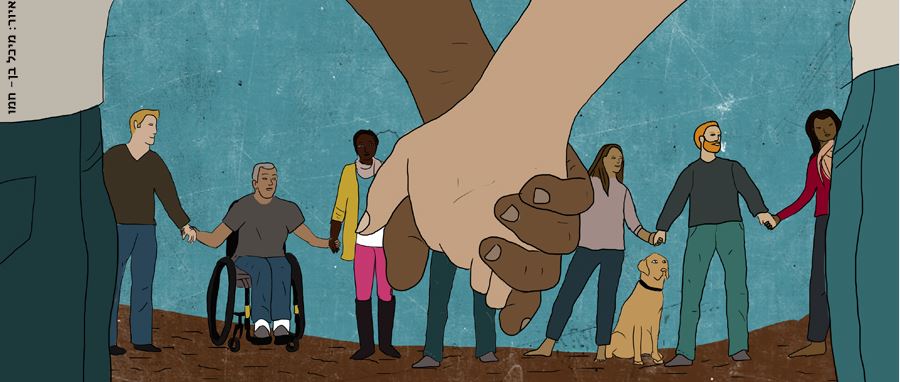On this coming Shabbat we will read in the book of Leviticus “You shall be holy.” We will recite a long list of deeds that would make us holy, of loving our fellow human beings, of caring for the poor and the stranger, a rich list of Mitzvot, forever timely. There are other Mitzvot, perhaps not as often quoted, yet in our time deserve attention.
Two of them I would like to highlight as right there on the list, both are so timely. To grasp their significance I turn to the admonition to fear God that appears only five times in the whole Torah. All five are in the book of Leviticus, and two appear in this Parasha, so fittingly named, K’doshim, Holy. Significantly, all the cases of the admonition to fear God are about transgressing relations we have with one other, bein adam l’havero. They are rooted in what the sages have defined as Mitzvot, obligations of the heart, in which there is no way to ascertain when the person has engaged in the transgression and there is no court to render a judgment. Thus, obligations of the heart are not in the legal realm, but rather they involve an ethical Mitzvah left to the person’s own conscience.
The first two Mitzvot, prohibitions, attached to fearing God, say, “You shall not curse a deaf person, you shall not put a stumbling object before a blind person, you should fear your God, I am your God.” The prohibition on cursing comes up for the first time in the Book of Exodus, in which we are forbidden to curse leaders and judges. In Leviticus, however, the warning is about a deaf person. One could reasonably wonder, why not just issue a general rule, “Do not curse,” and why specifically not to curse the one who is hard of hearing?
Not surprisingly, Maimonides makes it clear that the Torah forbids cursing any human being in order not to cause pain and sorrow. It would seem therefore that cursing a deaf person would not matter, since the person hard of hearing could not possibly feel hurt. Well aware of this possible position, Maimonides writes, “It would seem that the Torah prohibition not to curse a human being in order to avoid pain and suffering, is to avoid causing the person shame. However, cursing a deaf person would not constitute a transgression since the person would not hear and thus would not feel shamed. Cursing, however, is not just about the other, the cursed, but about the curser as well, who in cursing would acclimate his or her soul to feeling anger and vengeance.”
In the case of cursing the deaf, the warning, “You shall fear your God,” continues with, “I am your God,” to emphasize as the sages noted in Ethics of the Ancestors, Pirkei Avot, that “there are eyes to see and ears to hear,” even when no humans are around to hear the curse or see the hurt.
The Torah scholar Nehama Leibowitz, adds to Maimonides commentary that “the damage of curses is to the soul of the speaker because curses defile the mouth with hurtful words. It is significant that of the 44 times of transgressions, al het, that we confess on Yom Kippur, 11 of them are about the words of our mouth.”
The prohibition on cursing the hard of hearing highlights a long Jewish tradition of ethical obligations. We are obligated to be mindfulness of the words that come out of our mouth, even when no one is around. How much more so, when the words that come out of our mouth enter the public domain. Let us not accustom the soul to cause pain and suffering.
—
Translated from the Hebrew by Ayala Emmett
